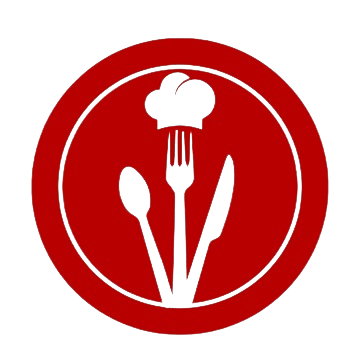
Table of contents:

Stress affects us all differently, but its impact on our health is undeniable. Adaptogens, a unique category of herbs, are known for boosting the body’s ability to handle stress and sharpen mental clarity. By integrating adaptogens into your lifestyle, you can potentially reduce stress-related symptoms and enhance resilience and cognitive function.
Understanding Adaptogens

What Are Adaptogens?
Adaptogens are nature’s answer to managing stress effectively. Coined in the 1940s, the term “adaptogen” originally described plant based extracts that help humans adapt to stress in a nonspecific manner. Today, adaptogens encompass a diverse array of supplements, both natural and synthetic, known for their ability to fortify the body against stress without disrupting its normal functions. (1)
These potent substances are celebrated for their capacity to enhance mental clarity, physical endurance, and overall vitality. With their growing popularity in integrative medicine, adaptogens continue to captivate interest for their potential to support a balanced and resilient lifestyle.
Historical uses in different cultures
Traditional Chinese Medicine (TCM):
- Balancing Yin and Yang: Adaptogenic herbs like ginseng (Panax ginseng) have been used to restore and maintain the balance of yin and yang, essential for health and vitality in TCM.
- Enhancing Qi: Ginseng and other adaptogens are believed to tonify qi, the vital life force, and are used to address qi deficiency, which can manifest as fatigue and weakness.
- Stress Reduction: Adaptogens such as astragalus (Astragalus membranaceus) are utilized to help the body adapt to stress, promoting resilience and reducing the negative impacts of stress on health.
- Supporting Immunity: These herbs are often prescribed to boost the immune system, helping the body resist infections and recover from illnesses more effectively.
- Holistic Health: Adaptogens in TCM are used in complex formulations that address not only physical symptoms but also emotional and environmental factors, reflecting the holistic approach of TCM to health and disease prevention.
Ayurveda:
- Rasayana Therapy: Adaptogenic herbs such as Ashwagandha (Withania somnifera) and Shatavari (Asparagus racemosus) are integral to Rasayana, a rejuvenation therapy aimed at promoting longevity, vitality, and overall health.
- Stress Management: Herbs like Tulsi (Ocimum sanctum) and Brahmi (Bacopa monnieri) are traditionally used to help the body adapt to stress, reduce anxiety, and enhance mental clarity.
- Immune Support: Adaptogens in Ayurveda, including Guduchi (Tinospora cordifolia), are employed to strengthen the immune system, increasing resistance to illnesses and supporting recovery.
- Balancing Doshas: Adaptogenic herbs are used to balance the three doshas (Vata, Pitta, and Kapha), which are the fundamental bodily energies that govern physical and mental processes.
- Enhancing Stamina: Adaptogens like Ashwagandha are prescribed to improve physical strength, endurance, and energy levels, helping individuals to cope with physical exertion and fatigue.
Russian Herbal Medicine:
- Stress Management: Adaptogens like Rhodiola rosea and Ashwagandha have been used to help the body cope with and adapt to stress, promoting emotional and physical resilience.
- Energy and Stamina Boost: Herbs such as Panax ginseng and Eleutherococcus senticosus (Siberian ginseng) are traditionally used to enhance energy levels, physical stamina, and overall vitality.
- Immune System Support: Adaptogenic plants like Astragalus membranaceus have been employed to strengthen the immune system, aiding in the prevention and recovery from illnesses.
- Hormonal Balance: Adaptogens like Schisandra chinensis and Maca root are used to balance hormonal levels, supporting reproductive health and reducing symptoms of hormonal imbalances.
- Cognitive Enhancement: Herbal adaptogens such as Bacopa monnieri and Gotu Kola are historically utilized to improve cognitive functions, including memory, focus, and mental clarity.
Other Traditional Medical Systems:
- Kampo (Japan): Adaptogenic herbs such as Ginseng (Panax ginseng) are used in Kampo medicine, a unique system of traditional Japanese phytotherapy, to enhance physical strength, improve vitality, and treat conditions of weakness and fatigue. Kampo formulations like Juzentaihoto are prescribed to restore health and balance.
- Korean Traditional Medicine: Herbs like Ginseng have been central to Korean medicine for boosting energy, improving immune function, and promoting longevity. They are often used to combat fatigue and enhance overall well-being.
- Native American Medicine: Adaptogenic plants like Echinacea were used to support the immune system, fight infections, and promote healing. They were also valued for their ability to increase physical stamina and overall vitality.
- Traditional African Medicine: Adaptogenic herbs like Devil’s Claw (Harpagophytum procumbens) are used for their anti-inflammatory and stress-relieving properties. They are traditionally employed to treat a variety of ailments, including pain and digestive issues, while enhancing the body’s resilience to stress.
Each culture has its own unique adaptogenic plants, reflecting regional biodiversity and traditional knowledge passed down through generations. (2)
How Adaptogens Work
Adaptogens work their magic by fine-tuning the delicate balance of the hypothalamic, pituitary, and adrenal glands—the power trio of our stress response team. They operate by modulating and optimizing this stress response mechanism. Normally, when the body encounters stress, it progresses through three distinct stages:
- alarm phase
- phase of resistance
- phase of exhaustion
When faced with stress, such as lifting weights for example, our body springs into action by releasing hormones like adrenaline to enhance muscle performance and focus during the resistance phase. This surge helps us push through challenges with renewed energy and clarity.
However, as fatigue sets in, we move into the exhaustion phase. Adaptogens step in here, extending the peak performance phase—where we feel strong and capable—allowing us to sustain our momentum and resilience for longer periods.
Studies on adaptogens have examined their impact on both animals and isolated neuronal cells, revealing various effects on the body:
- neuroprotective elements
- anti-fatigue properties
- antidepressive effects
- stimulant for central nervous system
- increase mental work capacity
- enhance attention, and
- prevent stress and fatigue
In essence, these natural compounds help us cope better with stress, supporting resilience and overall well-being. (3)
Types of Adaptogens
Types of adaptogens encompass both plant-based and synthetic compounds, each offering distinct benefits to the body’s stress response and overall health. (1)
1. Plant Adaptogens:
Plant-based adaptogens derive from natural sources and contain biologically active compounds like phytochemicals. They are known for their ability to enhance the body’s resilience and mitigate the impact of stress. Examples include:
- Panax ginseng
- Acanthopanax senticosus (Eleutherococcus senticosus)
- Rhodiola crenulata
- Schisandra chinensis
2. Synthetic Adaptogens:
Synthetic adaptogens are artificially created compounds designed to mimic the effects of natural adaptogens. They are formulated to enhance mental and physical endurance, improve blood circulation, and regulate metabolic processes. Examples of synthetic adaptogens include:
- Bromantane
- Levamisole
- Aphobazole
- Bemethyl
Popular Adaptogens and Their Benefits

Popular adaptogens have gained attention for their recognized ability to enhance resilience to stress and promote overall well-being. From traditional herbs like ginseng to newer supplements, each adaptogen offers unique benefits supported by ongoing research. (1)
🌿 American ginseng (Panax quinquefolius)
Possible benefit: may boost memory, reaction time, calmness, and immune system
Possible side effects: may interact with blood thinners
🌿 ashwagandha (Withania somnifera)
Possible benefit: may reduce stress and anxiety
Possible side effects: may cause stomach upset; not safe in pregnancy
🌿 astragalus (Astragalus membranaceus)
Possible benefit: may combat fatigue
Possible side effects: may interact with drugs that affect the immune system
🌿 cordyceps (Cordyceps militaris)
Possible benefit: may boost stamina
Possible side effects: may cause dry mouth, nausea, abdominal distension, throat discomfort, headache, diarrhea, allergic reactions; may cause lead poisoning; not safe for people with RA, multiple sclerosis, or systemic lupus erythematosus (lupus)
🌿 goji berry (Lycium barbarum)
Possible benefit: may boost energy, physical and mental performance, calmness, sense of well-being, can improve sleep
Possible side effects: may cause allergic reaction
🌿 eleuthero root (Eleutherococcus senticosus)
Possible benefit: may improve focus and stave off mental fatigue
Possible side effects: may cause upset stomach, headache
🌿 jiaogulan (Gynostemma pentaphyllum)
Possible benefit: may reduce stress and boost endurance
Possible side effects: no side effects recorded as yet
🌿 licorice root (Glycyrrhiza glabra)
Possible benefit: may reduce oxidative stress
Possible side effects: may cause high blood pressure, reduced potassium, possibly unsafe for people with kidney disease or cardiovascular problems; not suitable during pregnancy
🌿 rhodiola rosea (R. rosea)
Possible benefit: may stave off physical and mental fatigue
Possible side effects: may cause dizziness, dry mouth or excess salivation
🌿 schisandra berry / magnolia berry (Schisandra chinensis)
Possible benefit: may boost endurance, mental performance, and working capacity
Possible side effects: may cause restlessness, sleep problems, breathing difficulty
🌿 tulsi / holy basil (Ocimum sanctum)
Possible benefit: may reduce physical and mental stress, stress-related anxiety, and depression and improve memory and thinking
Possible side effects: likely safe for most people, but more research is needed
🌿 turmeric (Curcuma longa)
Possible benefit: may reduce depression
Possible side effects: likely safe in small amounts

1. The Be Happy Bowl features a refreshing blend of pineapple, mango, banana, and coconut oil, infused with turmeric and maca root for a delightful tropical taste that also supports stress reduction and mood enhancement.
2. Goji berry superfood toppings elevate your Clean Juice experience by adding antioxidant-rich goodness that boosts vitality and harnesses adaptogenic benefits for overall wellness.
3. Turmeric as an add-in at Clean Juice offers vibrant flavor and potent adaptogenic properties, promoting immune support and stress relief with every sip or bite.
Sources:
Disclaimer: The information presented here is for educational purposes only and is in no way intended as a substitute for medical counseling. Consult your doctor before using any health treatment, including natural remedies, and tell your doctor if you have a serious medical condition or are taking any medications.
If you’re unsure whether physical activity would be a healthy addition to your wellness routine, ask your doctor if any of your health details might make physical activity unsafe for you.
#Natural #Remedies #Stress #Fatigue




